Stoicism is an ancient philosophy that has gained increasing relevance in modern times, thanks to its principles of virtue, resilience and self-improvement. If you are interested in exploring this philosophy deeply and reaping its benefits, reading books on Stoicism is an excellent starting point. In this blog post, we will present a list of the 7 best books on Stoicism that can transform your life and help you apply its teachings in your everyday life.

1. “Meditations” by Marcus Aurelius
Few ancient works were as influential as those Meditations by Marcus Aurelius, philosopher and emperor of Rome between the years 161 and 180. A series of texts and essays full of wisdom, practical guidance and profound understanding of human behavior, it remains one of the greatest works of personal and spiritual development, ethical and behavioral principles already written. Marco's insights and advice—from living in the world to dealing with adversity and interacting with others—have made his writings a must-read for statesmen, philosophers, leaders, and scholars of human behavior. For anyone struggling to reconcile the demands of leadership with concerns for personal integrity and spiritual well-being, the Meditations remain as relevant now as they were two thousand years ago. Also known as the Stoic Emperor, Meditations still brings with it the basic foundations of Stoicism. The style and construction of this work, originally a diary of the emperor's notes, makes it possible to completely rediscover the thoughts of one of the most enlightened and intelligent leaders of any era.
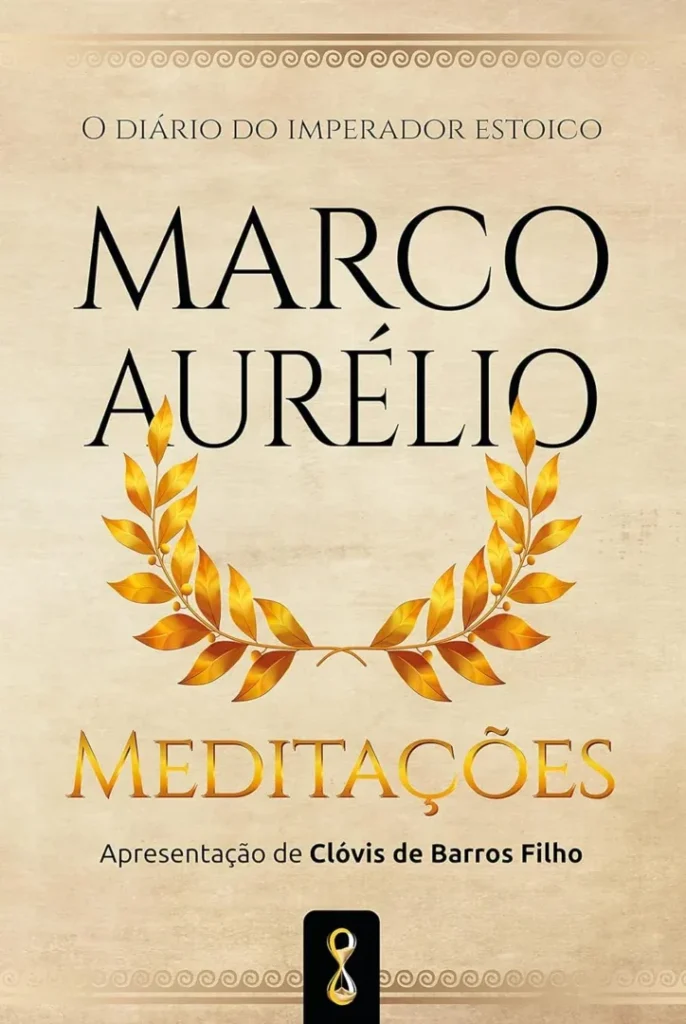
Synopsis:
This book is a collection of personal reflections of the Roman emperor Marcus Aurelius, who was a dedicated stoic. In the “Meditations”, he shares his philosophy of life, emphasizing the pursuit of virtue, self-control and serene acceptance of fate. It is an inspiring work that offers profound insights into how to live an ethical and meaningful life.
2. “Letters to Lucilius” by Seneca
Seneca forged his masterpiece in these letters, his living testament, in which countless concerns and experiences are addressed. The letters constitute a pedagogy in action, in which the master dedicates himself to the progress of his disciple, Lucílio. In them, Seneca presents a synthesis of his principles of wisdom, virtue and freedom. Seneca addresses the search for happiness, the fear of death, disillusionment, friendship, old age and equanimity in the face of vicissitudes, as well as raising one of the main questions of our day: how to combine quality of life and scarce time. The philosopher's advice can therefore help us to develop the courage necessary to face reality and to deal with it in the best possible way.
Its main philosophy, stoicism, can be seen as a system for thriving in high-stress environments. At its core, it teaches how to separate what you can control from what you can't and trains us to focus exclusively on the former. Stoicism was designed for achievers. Seneca can be seen as a practical guide to being content with enough. Practicing stoicism makes you less emotionally reactive, more aware of the present, and more resilient. As you navigate life, this type of mental strength training also makes difficult decisions easier, whether it's quitting a job, starting a company, asking someone out, ending a relationship, or anything else.
XNUMXst century readers will be surprised by lessons like: “The length of my life does not depend on me. What depends is that you do not go through the phases of this life in an unnoble way."; "Poor is not the man who has little, but the man who longs for more". "What is the appropriate limit for wealth? It is, first, having what is necessary and, second, having what is sufficient".

Synopsis:
Seneca, one of the most renowned Stoic philosophers, wrote a series of letters to his friend Lucilius. In these letters, he provides practical advice on how to apply Stoic principles in everyday life. It covers topics such as emotional resilience, self-improvement and the pursuit of virtue. It is a valuable guide for those who wish to live according to the stoic teachings.
3. “Epictetus’ Handbook” by Epictetus
Epictetus, one of the main representatives of stoicism, left in his legacy ethical teachings with practical precepts for timeless questions about the art of living better.
This succinct and exquisite philosophical Manual, compiled by his disciple Flávio Arriano and presented here in bilingual version (Greek-Portuguese), brings together 53 aphorisms of ethical content that express Epictetus' fundamental concern: the conduct and behavior of human beings in society, and their reflection in the manifestation of the long-awaited happiness.
His teachings bring together simple and objective lessons on how to conduct our personal moral improvement – through the practice of virtues such as tolerance, benevolence, discretion, simplicity, justice, moderation and courage, in harmonious communion with nature and in peaceful acceptance of everything that happens and that affects us – and living peacefully with our fellow humans, even if relationships are challenging.
With wide repercussion in the intellectual circles of the Roman Empire, This Manual exerted a marked influence on the thinking and conduct of stoic emperor Marcus Aurelius.
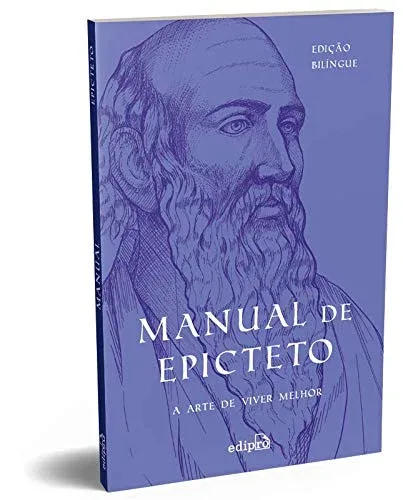
Synopsis:
Epictetus, another prominent Stoic philosopher, presents his principles in “The Handbook of Epictetus.” This book is a practical guide to life, highlighting the importance of distinguishing between what is in our control and what is not. He teaches acceptance of what we cannot change and the continuous pursuit of virtue as the path to serenity.
4. “The Art of Living” by Sharon Lebell (based on the works of Epictetus)
With passionate simplicity, the philosopher Epictetus devised the West's first and most admirable manual on how to live better – with wisdom, dignity and tranquility.
Epictetus believed that the main goal of philosophy is to help ordinary people positively face everyday challenges and deal with life's inevitable losses, disappointments, and heartaches.
The art of living preaches personal freedom and serenity and demonstrates that virtue and happiness are closely related.
Born a slave around AD 55 in the Roman Empire, he became one of the great masters of Stoicism and dedicated his life to answering two fundamental questions: “How to live a full and happy life?” and “How to be a person with moral qualities?” .
The 93 thoughts gathered in this book bring the essence of a philosophy whose merits have been proven by time.
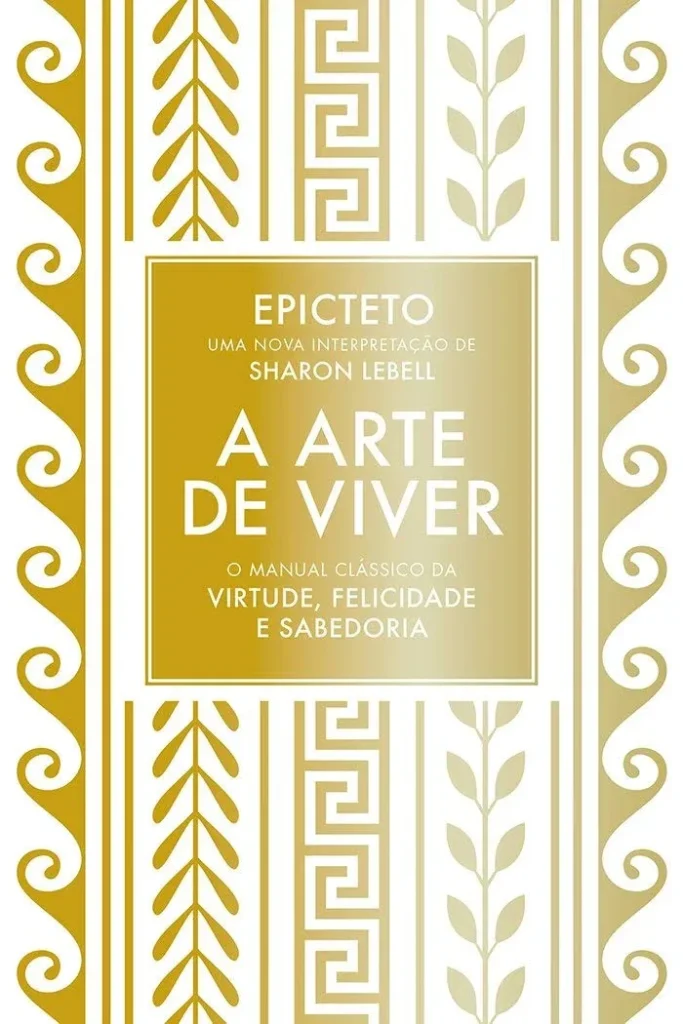
Synopsis:
“The Art of Living” is a modern interpretation of the teachings of Epictetus by Sharon Lebell. This book makes Stoic principles accessible to contemporary audiences, offering practical advice on how to apply Stoicism in everyday life. It's an inspiring read and easy to follow.
5. “Stoicism – The Art of Happiness” by Donald Robertson
A smart, authoritative study guide that offers successful strategies for change with engaging insights into the human condition The Stoics lived a long time ago, but they had some surprising insights into the human condition – insights that endure to this day. The philosophical tradition, founded in Athens by Zeno of Citium in 301 BC, endured as an active movement for nearly five hundred years, and contributions from dazzling minds such as Cicero, Seneca, and Marcus Aurelius helped create a body of thought with an extraordinary purpose. : provide a rational and healthy way of living in harmony with the nature of the universe and in respect for our relationships with each other. In many ways a precursor to Cognitive Behavioral Therapy (CBT), Stoicism provides an arsenal of strategies and techniques for developing psychological resilience, while celebrating everything in life that is beautiful and important. By learning what Stoicism is, you can revolutionize your life and learn to enjoy the day, live happily and be a better person. This simple and powerful book, written by one of the world's leading experts on the subject, shows you how to use this ancient wisdom to make practical, positive changes in your life. Using thought-provoking case studies, highlighting key ideas and concepts to remember, as well as providing tools for self-assessment, Donald Robertson demonstrates that stoicism is a proven and profound path to happiness.

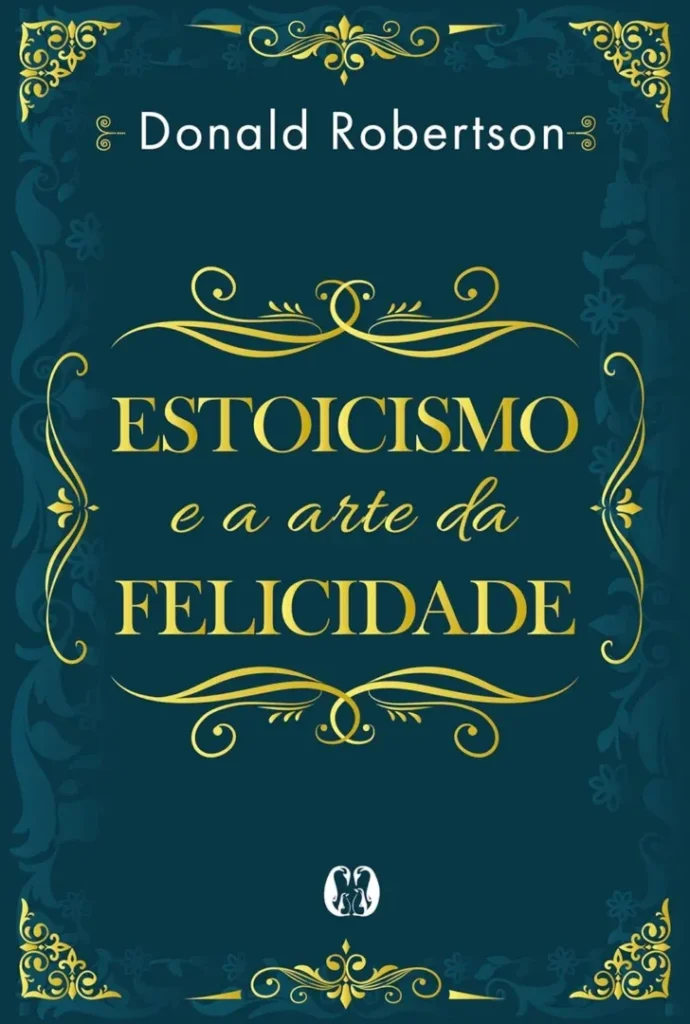
Synopsis:
This book explores Stoic teachings and how they can lead to a happier life. Donald Robertson highlights the importance of self-improvement, emotional resilience and acceptance of what we cannot control. It provides practical exercises for applying these principles to your own life.
6. “The Stoic Philosophy” by John Sellars
A book that shows how stoicism can, even today, inspire us to lead a better life.
"Lessons in Stoicism encourages us to become better and happier people, focused on rational decision-making.” – The Guardian
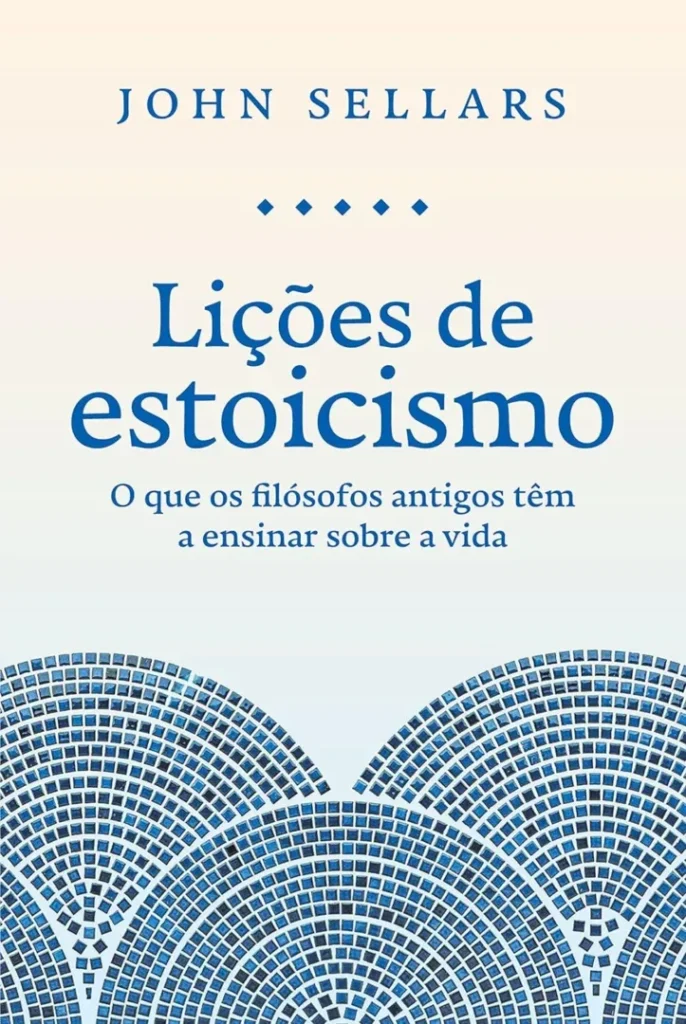
Synopsis:
“The Stoic Philosophy” offers an in-depth look at the origins and principles of Stoicism. The author, John Sellars, explores the ideas of ancient Stoic philosophers and how they apply to modern challenges. It is a valuable academic read for those who want a complete understanding of Stoicism.
7. “Stoicism Today” by Massimo Pigliucci
A Philosopher Asks How Ancient Stoicism Can Help Us Thrive Today Whenever we worry about what to eat, how to love, or simply how to be happy, we are worrying about how to lead a good life. No goal is more elusive. In How to Be a Stoic, philosopher Massimo Pigliucci presents Stoicism, the ancient philosophy that inspired the great emperor Marcus Aurelius, as the best way to achieve it. Stoicism is a pragmatic philosophy that focuses our attention on what is possible and gives us perspective on what is not important. By understanding Stoicism, we can learn to answer crucial questions: Should we get married or divorced? How should we handle our money in a world almost destroyed by a financial crisis? How can we survive a great personal tragedy? Whoever we are, Stoicism has something for us – and How to Be a Stoic is the essential guide.
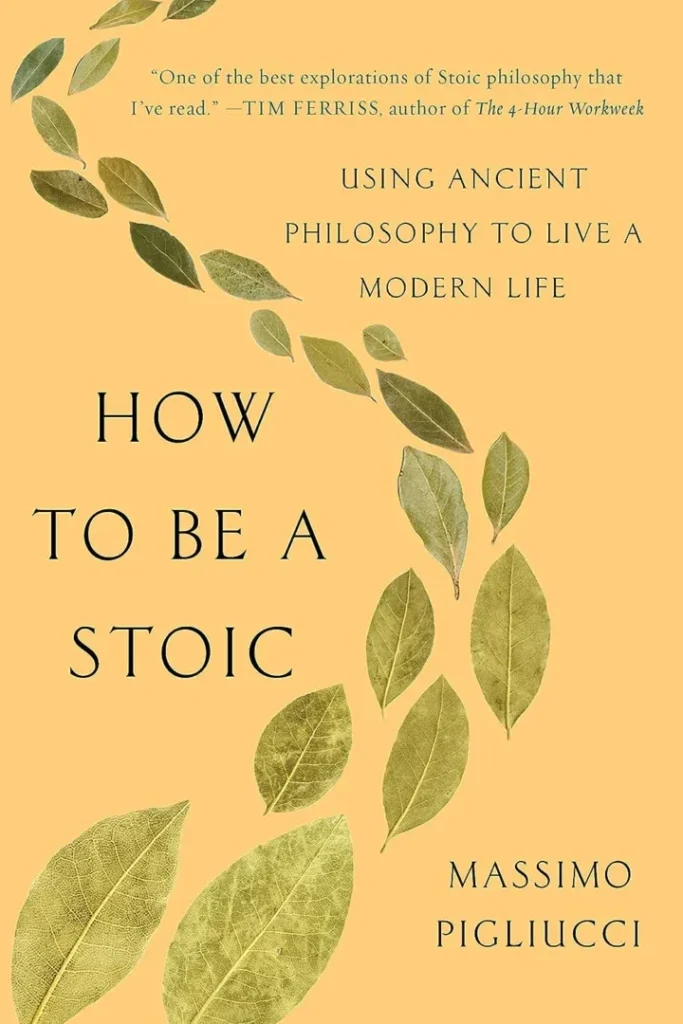
Synopsis:
Massimo Pigliucci, a contemporary philosopher, explores how Stoic principles can be applied to modern life. It addresses issues such as ethics, resilience, and self-improvement, offering an up-to-date perspective on Stoicism. It is a relevant and informative read for the XNUMXst century.
Conclusion
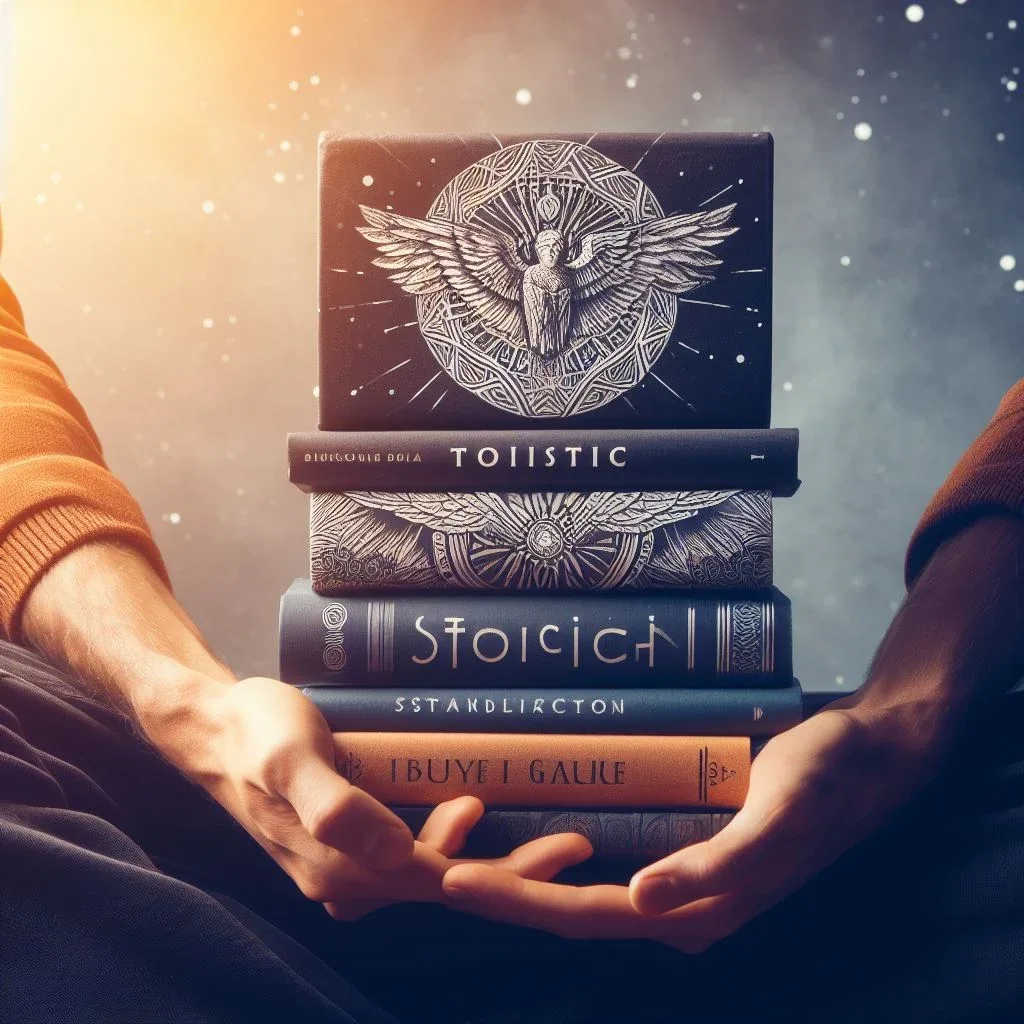
Reading these 7 best books on Stoicism is an excellent way to delve into the depths of this ancient philosophy and reap its benefits. Each book offers a unique and valuable perspective on how to apply Stoic principles to your own life, providing guidance for a more virtuous, resilient, and meaningful life.
These books on Stoicism are rich sources of wisdom and guidance for those who wish to embrace Stoic principles in their daily lives. Reading them can help you transform your life and live in accordance with Stoic teachings.





